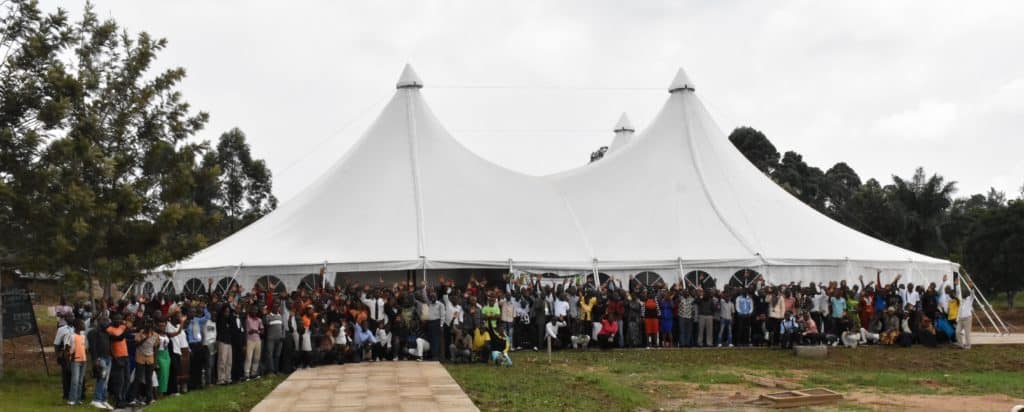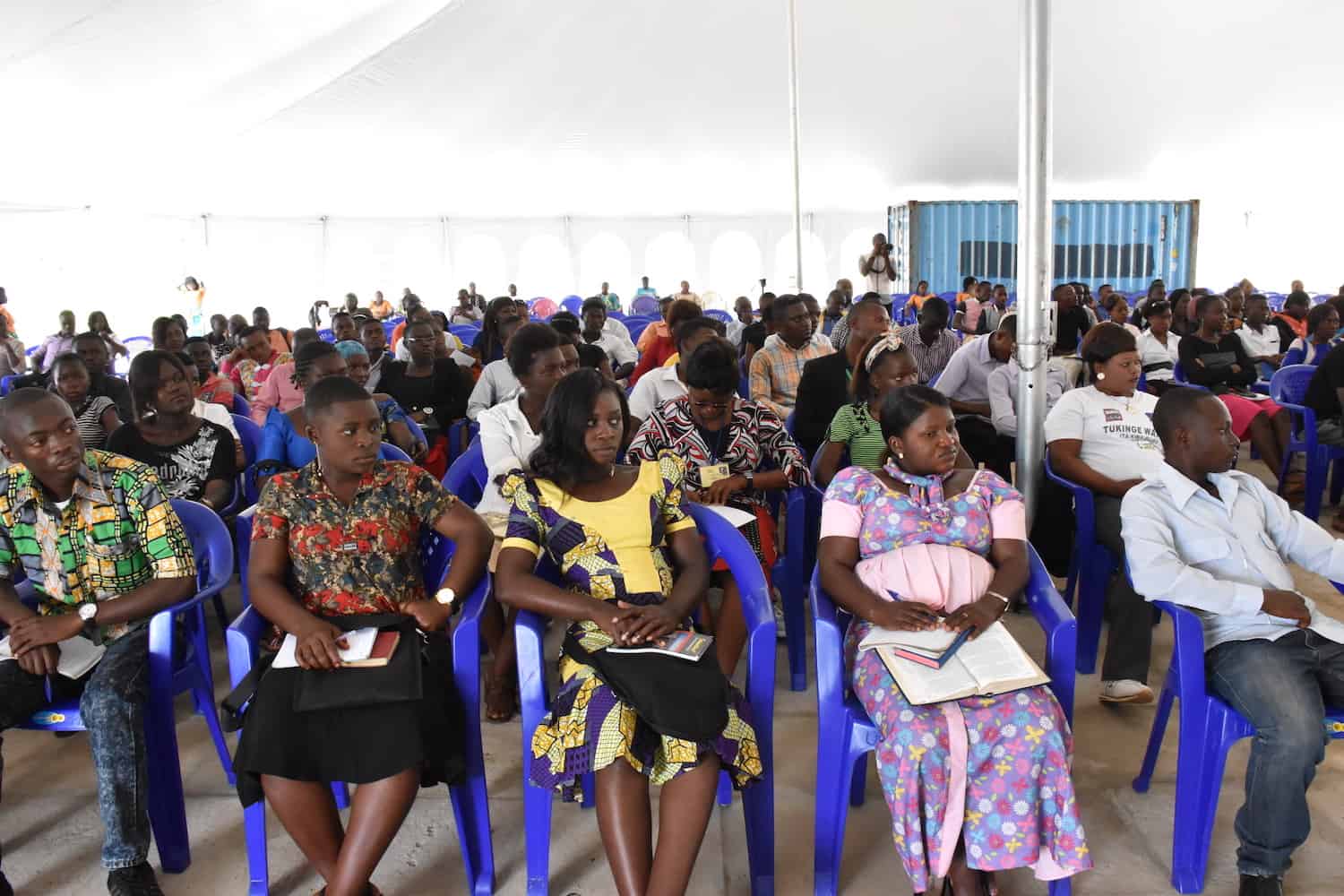Gathering in UCBC’s new Hope Chapel Tent, 700 youth met to discuss, share, and reimagine their identities as young Congolese. A two-day conference put on by the Center for Church Renewal and Global Mission (CCRGM) focused on encouraging youth as the hope for Congolese social change now and in the future.

Congolese youth are often viewed through a negative lens, as described by UCBC student and conference participant Ushindi Isenge: “In our culture, youth are perceived as mindless and lacking life experience. They are viewed as condemned to sexual immorality, drugs, and alcohol. So no one is ready to support youth initiatives. There are young people in Congo who can make a difference, but they always have to face this obstacle of cultural perspective and stereotype.”
Admired by other regions of East Africa for their artistic skills, musical talent, and ingenuity, Congolese youth are also stereotyped as always wanting to leave Congo for Europe or the U.S..
“In other regions of the world, people put their trust and hope in their youth,” explained Amos Kambale, a UCBC alumnus and CCRGM staff member. “But, Congolese youth seem not to have this same trust. They have been used and associated with militia and rebel groups, or assumed to be involved with drugs and other anti-values. So, we have a negative perception of the youth.”
Amos and other participants believe this perception has developed for a number of reasons. According to UCBC student, Bienfait Ngeste, one of those reasons is historical precedent. “Many young people in our country are neglecting their brothers and sisters for self-interests. But, this is the legacy we received from our history.”.
For Congolese, leadership and governance have been experienced mainly through brutal colonial rule, oppressive dictatorship, the continued threat of violence, and endemic corruption.
Amos believes that the lack of educational opportunities and ethical role models – leaders that are committed to their communities and changing the status quo – are two reasons why youth struggle to break free of the stereotype.
This is why Amos and his family came back to Congo after obtaining his Master’s at Africa International University. “We came back and we are trying to show that it’s possible to have hope in Congo. The youth need people who come and encourage them. The youth need to hear our stories and be encouraged to take initiative and start acting toward change, toward transformation.”
The church can play a key role in helping reimagine youth, and this conference affirms this possibility. Amos explained, “The aim of this conference was to help the general community and youth to understand what positive role they can play in the community. What is that goal that God has given them and what can they offer to the society?”
Encouraging and investing in Congolese youth is central to the work of Congo Initiative and UCBC. Since 2007, Congo Initiative has facilitated programs dedicated to providing educational opportunities and empowering youth to be the change in their country.
“I am one of the fruit of Congo Initiative, and I’m not alone as we are many,” Amos said. “Many people who have gone through UCBC and through some of our CCRGM trainings in the region perform well. We learn new things and we have hope and we give hope to the society. With all the love that they are experiencing, many other cultures and worldviews, they become equipped.”


Leave a Reply